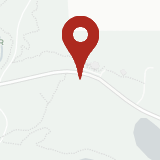ND State Parks Field Day-Turtle River State Park
- Reserve
- Details
- Comments

THIS EVENT HAS BEEN CANCELLED!
In partnership with the ND Department of Public Instruction, the ND Parks & Recreation Department is hosting exciting learning opportunities focused on science, nature exploration, outdoor recreation, and North Dakota history. This event will be tailored to the 5th - 7th grade levels (ages 9-13 years of age). Students will rotate through several educational activities/topics throughout the day.
Register and select the T-shirt sizes for you and your students at no cost. There will be NO onsite registration. Lunch will be provided.
Transportation assistance to the ND State Park is available for public and private school districts arriving by bus. Please apply for these funds here: https://forms.office.com/g/6PTskyt9Au
A student to chaperone ratio of approximately 12:1 is expected. Teachers, parents, mentors, leaders, etc. are expected to remain with the students throughout the day.
Those whom register will be contacted before the event to confirm the number of students and provide additional details (where to meet, what to expect, etc.)
Lunch will be provided for students and chaperones; however, feel free to bring a sack lunch if desired, but no refrigeration is available onsite. Students are encouraged to dress appropriately for the weather and bring water, sunglasses, and anything else they may need to remain comfortable outdoors.
Due to high demand for this programing, if your unable to make the event please cancel your registration or contact josh.steffan@nd.gov
Topics provided will depend upon staff availability, location, and weather conditions. A list of the topics that may be covered include:
• History of North Dakota (Native Americans & Pioneers)
• Paleontology of fossils found in ND including ancient fish
• Geology, including rock/mineral identification and importance
• Adaptations (animal and plant)
• Orienteering (compass and map reading)
• Water or carbon cycle
• Ecological and historical games
• River/wetland creatures
• Trees/Birds/Reptiles/Amphibians/Plants (identification, importance, adaptations)
• Use of binoculars and field-guides for animal identification
• Furs (adaptations and historical importance of the fur trade)
• Animal tracks and signs
• Soil structure, texture, and biology
For more information or questions please email: josh.steffan@nd.gov
